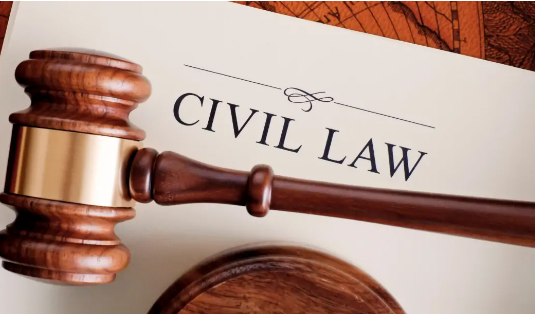Civil law serves as the cornerstone of modern legal systems worldwide. Therefore, governing a wide array of issues that arise in society. This legal framework is designed to resolve disputes between individuals, entities, or even the government. In this article, we will delve into the multifaceted realm of civil laws, examining its principles, procedures, and significance in contemporary legal practice.
Understanding the Foundations
To comprehend civil law fully, one must first grasp its fundamental principles. At its core, civil law revolves around the concept of civil wrongs, often referred to as torts. These wrongs encompass a broad spectrum of non-criminal offenses, such as negligence, contract breaches, and personal injury claims. Unlike criminal law, civil law primarily seeks compensation and resolution rather than punishment.
Transitioning from the Common Law System
In many countries, civil law operates in stark contrast to the common law system. While common law relies heavily on precedents set by past court decisions, civil law derives its authority from codified statutes and legal codes. This shift from precedent-based law to statutory law is a pivotal aspect of civil legal systems, providing a structured framework for adjudication.
Navigating the Civil Litigation Process
The journey through civil law begins with the initiation of a lawsuit, often referred to as a civil action. Plaintiffs, those seeking legal remedies, file complaints against defendants, the individuals or entities alleged to have caused harm. To kickstart the process, plaintiffs must articulate their claims clearly and concisely, adhering to the specific procedural requirements outlined in the relevant jurisdiction’s laws.
Transitioning from Complaint to Resolution
Once a lawsuit is filed, the civil litigation process unfolds systematically. Parties engage in the process of discovery, gathering evidence and information to support their respective claims or defenses. This phase allows both sides to exchange pertinent documents, depose witnesses, and gather facts crucial to building their cases.
Following discovery, parties often engage in settlement negotiations, seeking to resolve the dispute outside of the courtroom. Mediation and arbitration frequently serve as alternative dispute resolution methods to accomplish this goal. If negotiation fails to yield a resolution, the case advances to trial.
Civil Trial and Adjudication
The trial phase is a critical juncture in civil laws proceedings. Here, both parties present their evidence, witnesses, and legal arguments before a judge or jury. The burden of proof typically rests on the plaintiff, who must demonstrate the defendant’s liability by a preponderance of the evidence, a lower standard than the “beyond a reasonable doubt” standard in criminal cases.
Transitioning into Appeals and Enforcement
After the trial, either party can opt to appeal the court’s decision if they believe the proceedings contained errors or if they disagree with the verdict. Appellate courts assess the legal correctness of the trial court’s decisions, rather than reevaluating the evidence itself.
Once a judgment is finalized and no further appeals are pursued, the prevailing party seeks to enforce the court’s decision. Moreover, this often involves the collection of monetary damages or the execution of specific remedies as ordered by the court.

Importance of Civil Laws in Society
Civil law plays a pivotal role in maintaining social order and protecting individual rights. It provides a mechanism for individuals to seek redress for injuries, breaches of contract, property disputes, and a myriad of other civil wrongs. By offering a structured legal framework, civil law promotes accountability and fairness in society. Hence, guaranteeing that individuals and entities bear responsibility for their actions.
Transitioning in the Modern World
In the digital age, civil law is continually evolving to address novel legal challenges. Issues related to online privacy, intellectual property, and e-commerce have given rise to a new frontier within civil law. Courts and legal practitioners are adapting to navigate these complex issues and ensure that the principles of civil justice remain relevant in our interconnected world.
Conclusion
In conclusion, civil law, with its emphasis on resolving disputes and compensating victims, serves as a vital component of modern legal systems. Its principles, procedures, and significance in society are paramount to upholding justice and safeguarding individual rights. Understanding the foundations of civil law and its transition from common law systems allows individuals to navigate this intricate legal realm effectively.
In the ever-changing landscape of the modern world, civil law continues to adapt, ensuring that it remains a cornerstone of our legal systems. As new challenges emerge, the principles of civil justice will continue to guide us toward equitable solutions and the protection of individual rights.

